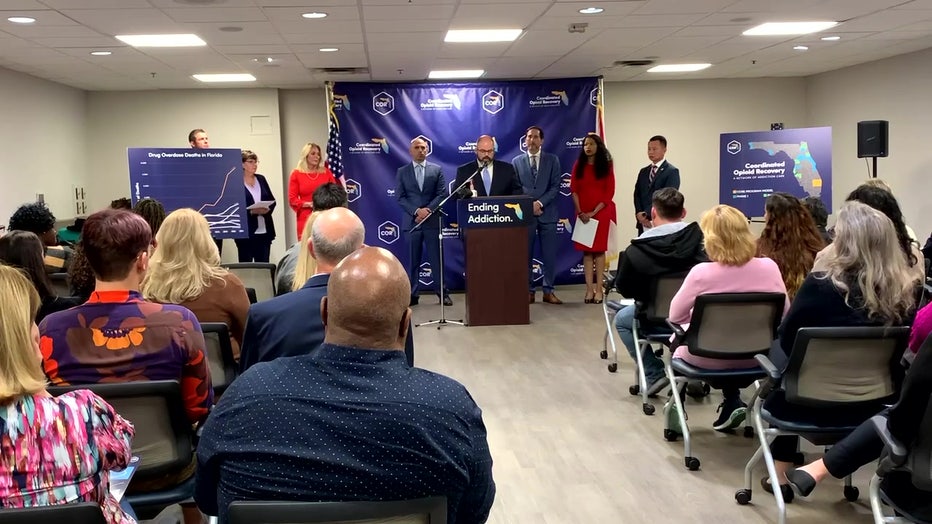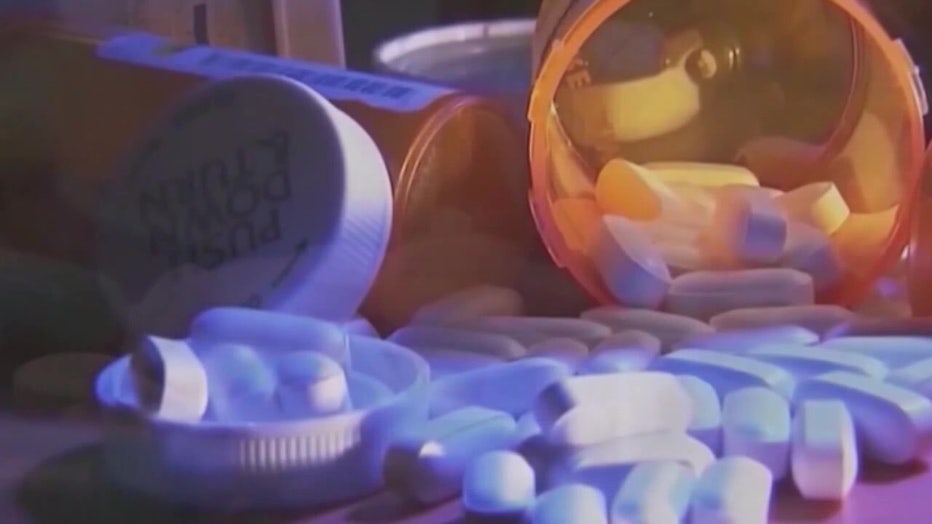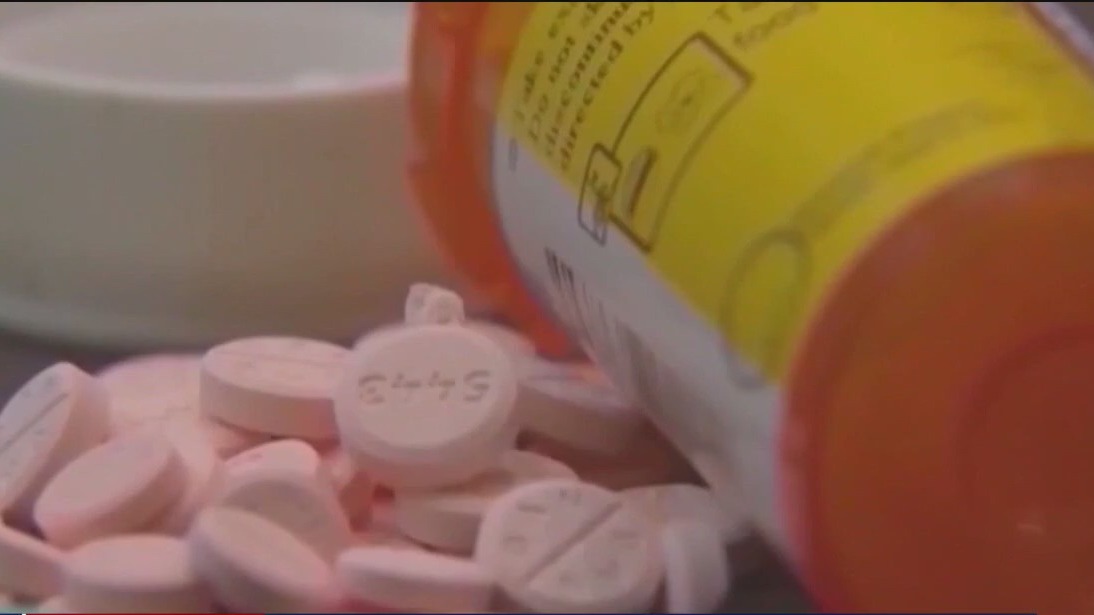Pinellas County chosen for new program to help tackle opioid crisis, prevent overdose deaths
ST. PETERSBURG, Fla. - Every 14 hours, someone died from an accidental drug overdose in Pinellas County last year, according to the Dr. Ulyee Choe, the director of the Florida Department of Health in Pinellas County.
Choe said overdose deaths have increased by 46% in Pinellas County over the past three years. State health officials said there were more than 8,000 overdose deaths across the state last year.
Pinellas County is one of 13 counties across Florida where state health leaders are implementing a comprehensive approach to tackle the opioid crisis. It’s called the Coordinated Opioid Recovery Network (CORE).
Health Care workers, community partners, treatment centers and local and state agencies work together to treat patients beyond an overdose.

"Opioid use disorder I have to say, I think the house of medicine has been a little late to the game to recognize this for the lifelong chronic life-threatening and relapsing disease that it is," Dr. Kenneth A. Scheppke, the deputy secretary for Health at the Florida DOH, said. "The patient is expected to navigate themselves through this system, is discharged from the emergency department, overdoses again, again and the cycle continues. That is a failed system and that’s one that ends today."
The program addresses food insecurity, housing, stable employment, mental health needs and provides peer counselors to help and support patients through the treatment process.
"It really takes a village," Scheppke said. "Rather than ask a patient with this disease to navigate themselves through this complex medical system, we’ll navigate the patient through it, assess them, find out what they need and hand them off from one step to the next step."
MORE: CDC softens opioid prescribing guidelines for doctors
Dr. Eric Shamas, an emergency room doctor at Bayfront Health in St. Petersburg, said he’s confident CORE will provide resources that will save lives.

"We don’t leave them stranded," Shamas said. "We don’t then send them out, as we mentioned before, to navigate a system that’s really hard to navigate. We partner them with peer-to-peer counselors."
Belynda Brown is now the detox director at the addiction treatment center, Operation PAR. She remembers exactly where she was more than two decades ago when she decided to get help for substance abuse.
"I had lost everything," she said. "I had lost my kids. I had lost my family, lost all hope, actually," Brown said. "I was on a park bench. Some of the old drunken guys they were burning fires. It was raining. I had nowhere to go, and I woke up, and they had put cardboard on me and all I could do at that moment was cry, and then I knew I needed to get some help."
Brown said if she had had CORE as an option, it would have made a difference.
PREVIOUS: Floridians battling addiction can find personalized options with TreatmentATLAS

The program can be accessed whether you overdose or not.
"Instead of just focusing on the catastrophe, now we have a way to prevent, and now we have a way to make sure they’re getting the treatment they need just like if you were to have high blood pressure," Shamas said. "You make sure you get to your doctor’s appointments. You take your medications and hopefully keep people from dying."
If you feel like you need help, the health care leaders said call a local addiction treatment center like Operation PAR in Pinellas, or 988, to get started.
They said they chose the counties to launch the Network in based on the need in the county, the highest overdose rates, and which ones have the infrastructure, like Pinellas, that has already launched local initiatives.
It’s also in Manatee, Pasco and Citrus counties. State officials said they hope to expand to other counties soon.


